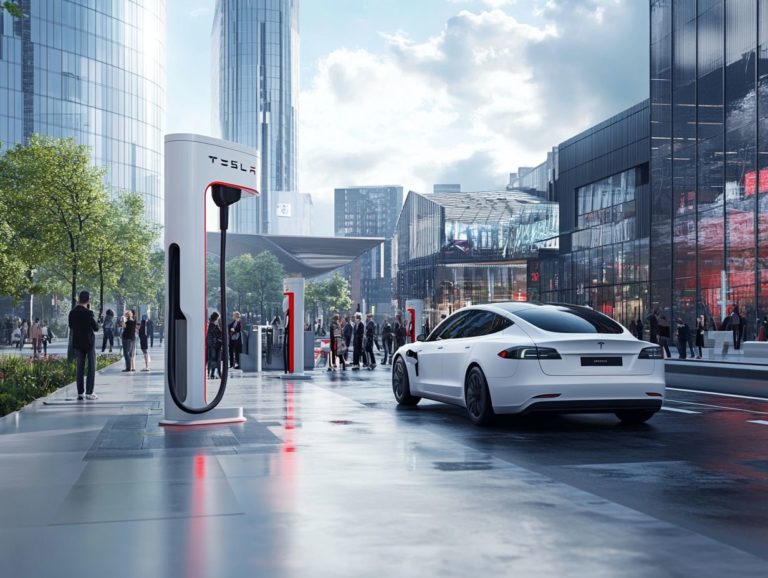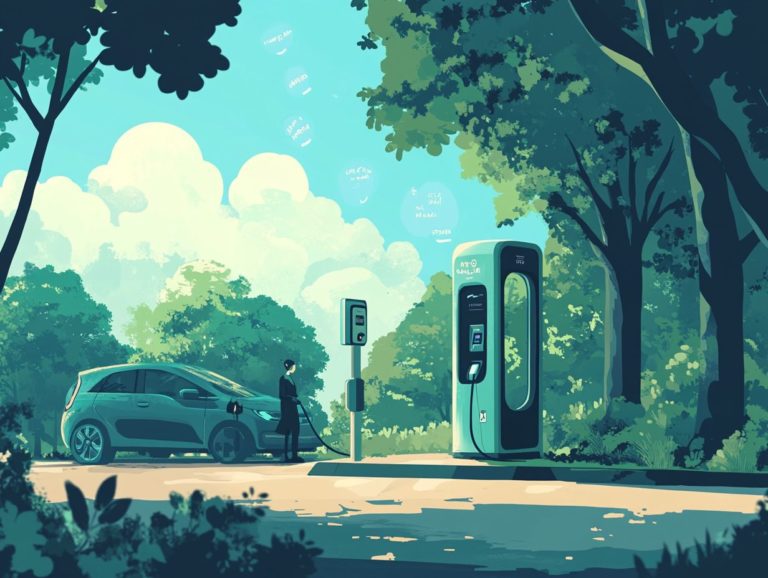the importance of charging station reliability
Electric vehicles (EVs) are becoming more mainstream. Reliable charging stations are essential for a smooth experience.
As an EV owner or city planner, it’s important to understand what makes a charging station dependable. This article explores the key factors that impact charging station reliability, the consequences of unreliable stations, and how advancements in technology and best practices can improve their performance.
Join us as we navigate the current landscape and emerging trends surrounding charging station reliability.
Contents
- Key Takeaways:
- Understanding Charging Station Reliability
- Factors Affecting Charging Station Reliability
- The Impact of Unreliable Charging Stations
- Improving Charging Station Reliability
- Best Practices for Installation and Maintenance
- Technological Advancements
- Future Outlook for Charging Station Reliability
Key Takeaways:
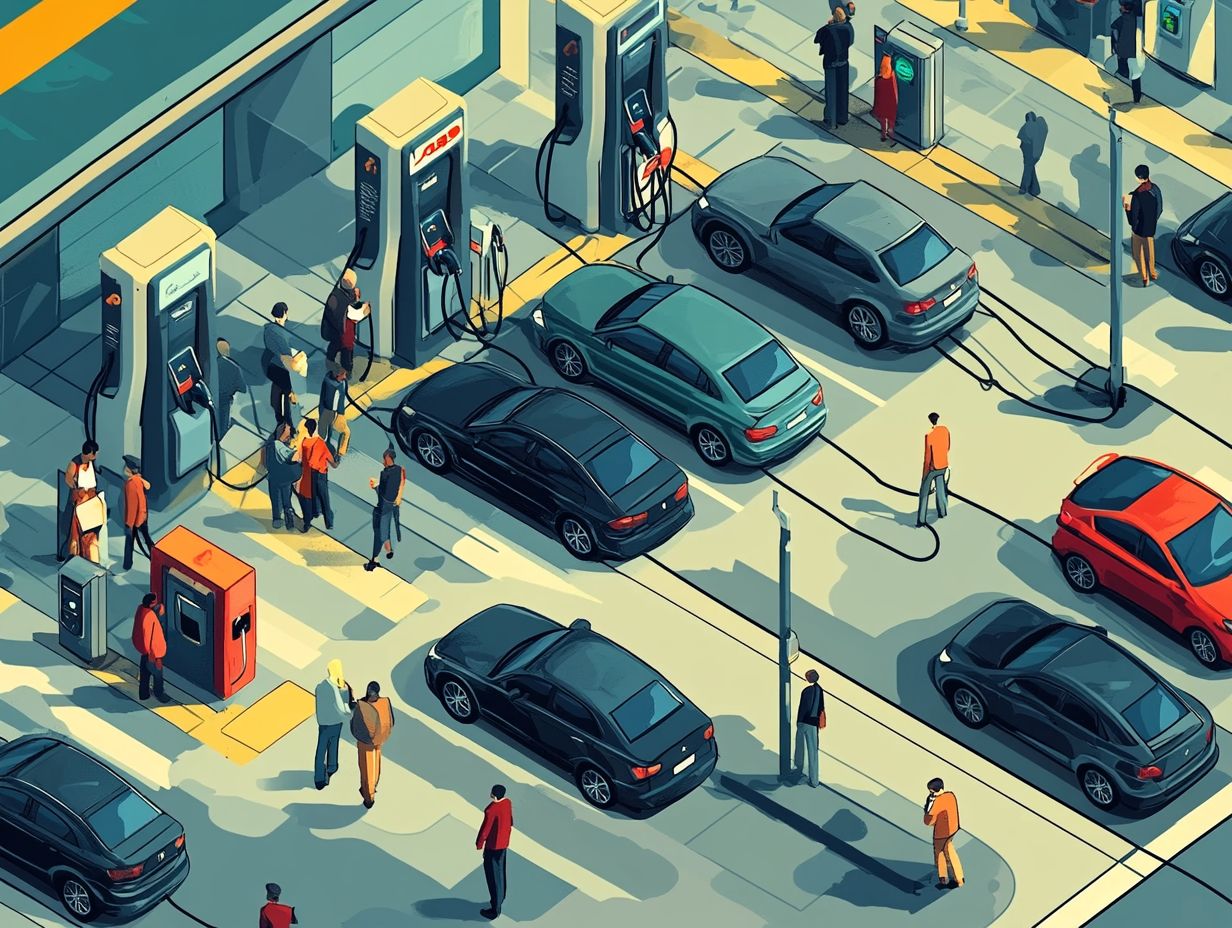
Reliable charging stations are crucial for the widespread adoption of electric vehicles and the success of a sustainable energy future.
Factors such as environmental conditions and proper maintenance play a significant role in ensuring the reliability of charging stations.
By implementing best practices and utilizing new technologies, we can improve the reliability of charging stations, reducing negative impacts on users and infrastructure.
Understanding Charging Station Reliability
Understanding charging station reliability is essential as you transition to electric vehicles (EVs) in today’s transportation landscape.
As more consumers move away from gas-powered vehicles, reliability becomes an important factor. This includes the availability of charging stations and the overall user experience all of which profoundly influence your trust and confidence in the electric charging infrastructure.
The National Electric Vehicle Infrastructure is focused on solving these problems by ensuring that charging stations are meticulously maintained and equipped to support an expanding network of EVs.
This commitment enhances your charging experience, making it smoother and more dependable.
What is a Charging Station?
A charging station is crucial for electric vehicles. It replenishes EV batteries and supports sustainable transportation.
You ll find these stations come in various types, including Level 1, Level 2, and DC fast chargers, each tailored to meet different charging speeds and requirements.
A well-integrated charging station is important within the larger charging network, ensuring you have convenient access to power sources no matter where your journey takes you.
Establishing a robust infrastructure of charging stations is vital for supporting the increasing adoption of electric vehicles and alleviating range anxiety among drivers. As cities and regions strive to enhance their sustainability initiatives, the expansion of charging stations represents a significant leap toward a greener future.
Why Reliability Matters
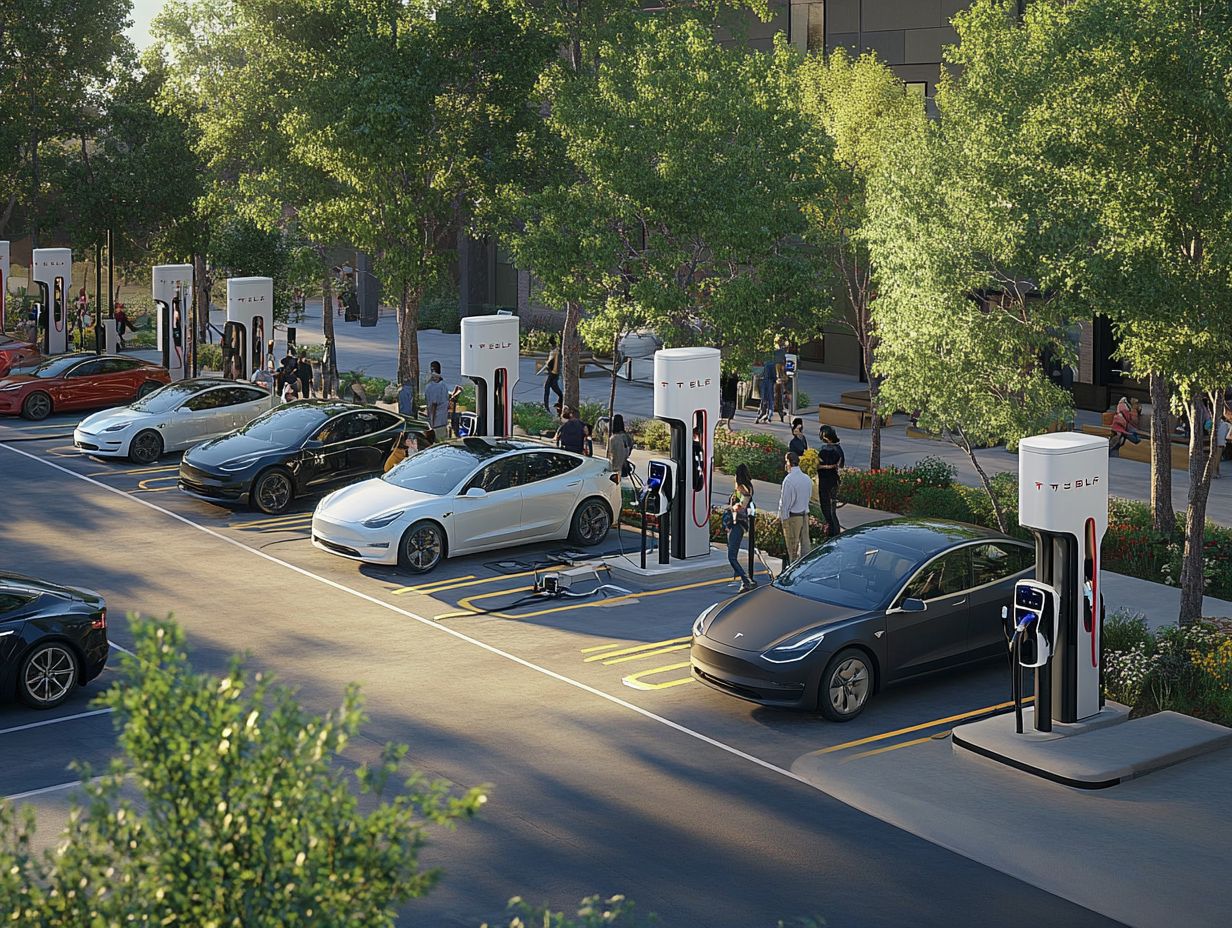
Reliable charging stations are a must for EV drivers. Downtime can cause significant headaches for electric vehicle users and undermine consumer confidence in the entire EV infrastructure.
Inconsistent access to charging can create anxiety for drivers, discouraging them from making the switch to electric alternatives. Imagine arriving at a station to recharge, only to find it’s out of service frustration is inevitable, especially when your battery levels are low.
This can throw a wrench in your plans and leave you stranded, raising larger questions about the practicality of owning an EV. That s why maintaining optimal availability at charging stations is vital; it builds trust in the EV ecosystem and ensures a seamless, positive experience that paves the way for greater consumer acceptance and usage.
Factors Affecting Charging Station Reliability
Numerous factors profoundly influence the reliability of charging stations, ranging from environmental conditions to the quality of the equipment used and the effectiveness of maintenance programs.
Each of these elements plays an important role in ensuring consistent availability while minimizing any potential downtime.
Environmental Factors
Environmental factors can impact the reliability of charging stations and their overall performance.
Extreme temperatures can slow down charging rates or even cause system failures.
Heavy rain or snow may lead to malfunctions from moisture entering or ice forming.
Strong winds can disrupt power supply or damage the station.
You may encounter unexpected delays when searching for a dependable charging option.
We must urgently improve weather-resistant designs and maintenance to ensure consistent operation.
Equipment and Maintenance
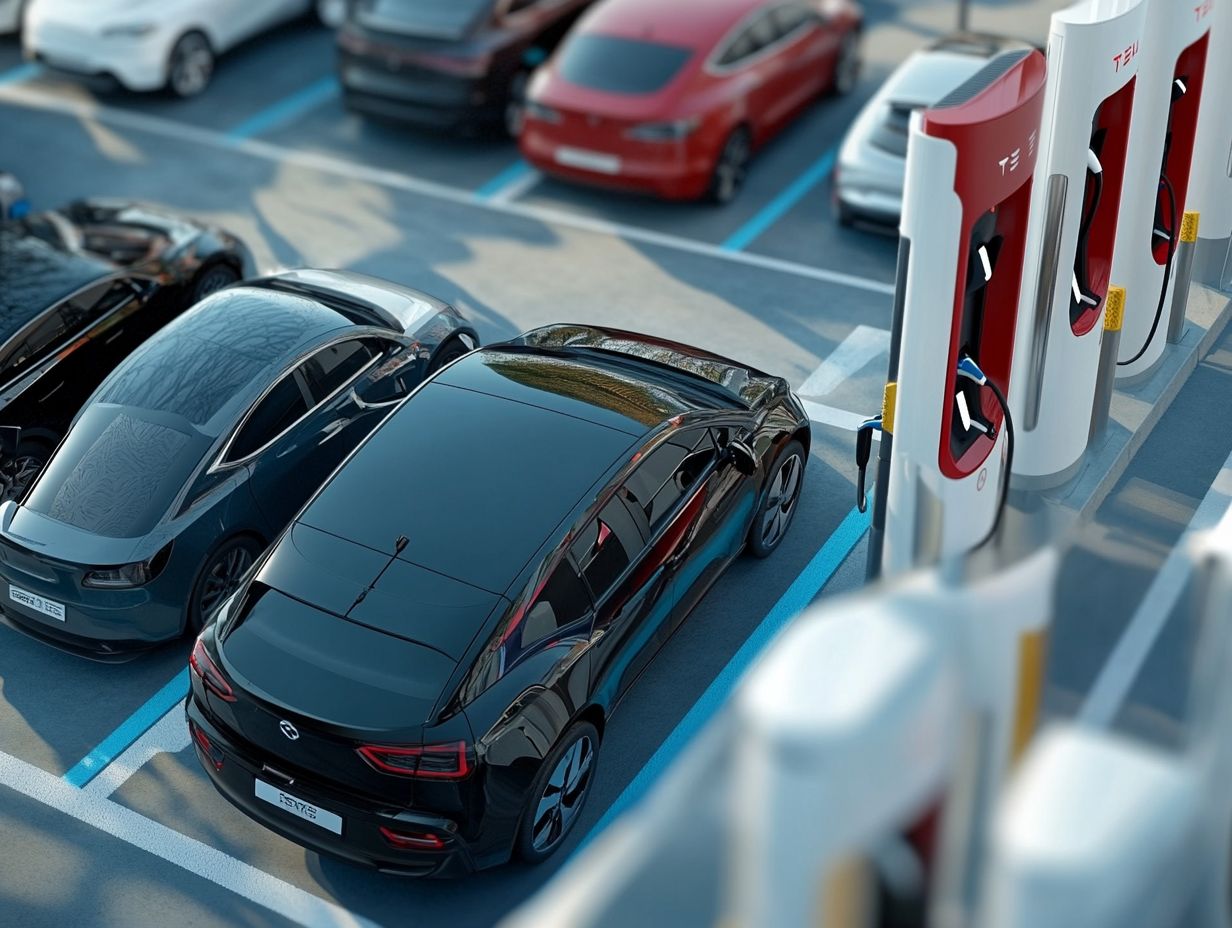
The choice of equipment and maintenance effectiveness are key to reliable charging stations.
Every component, from charging units to software, plays a vital role.
Regular inspections and timely updates can extend device lifespan and prevent unexpected failures.
A strategic maintenance schedule is essential.
This approach reduces downtime and enhances service availability.
By focusing on prevention and quick responses, you can build a reliable EV charging network.
The Impact of Unreliable Charging Stations
Unreliable charging stations create challenges for electric vehicle users.
These issues affect not just your experience, but also the entire EV infrastructure.
Consequences for Electric Vehicle Users
For you, as an electric vehicle user, relying on unreliable charging stations can lead to a range of inconveniences.
Frustrating downtime, nagging range anxiety, and growing distrust in the entire EV infrastructure are part of this scenario.
This concern is amplified by the increasing adoption of electric vehicles, which relies heavily on a strong charging network.
When you encounter non-functioning stations or face long wait times, it can quickly become frustrating.
You might question the reliability of your investment, impacting your journeys and stifling wider acceptance of this transformative technology.
Trust in electric vehicle systems wanes when unexpected barriers catch you off guard, hindering your ability to enjoy the seamless, eco-friendly travel you initially envisioned.
Effects on Infrastructure and Energy Grids
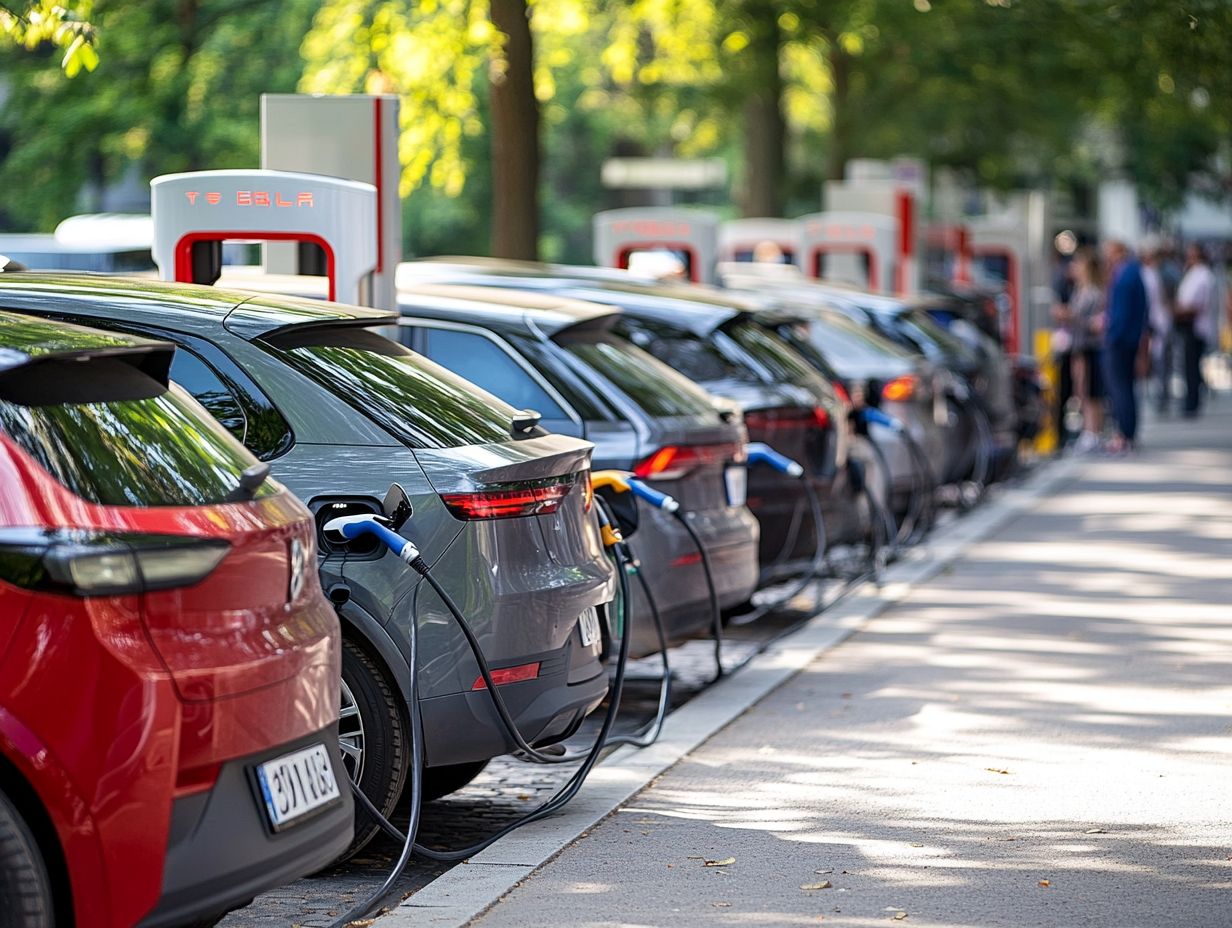
Unreliable charging stations can hamper the infrastructure that supports electric vehicles.
Frequent outages lower your confidence and can congest operational stations.
This unpredictability complicates demand planning and affects energy grid stability.
Lack of reliability may hinder the growth of electric vehicles and sustainability goals.
Improving Charging Station Reliability
Improving charging station reliability is essential for the growth of electric vehicles.
This requires best practices in installation, maintenance, and embracing new technologies.
Best Practices for Installation and Maintenance
Following best practices for installation and maintenance is key to ensuring the reliability and longevity of electric vehicle (EV) charging stations.
Select high-quality equipment that can handle different weather conditions. Regular inspections help spot wear and tear or faulty components early on.
Using smart technology boosts monitoring. This allows operators to receive real-time alerts about any issues.
Make sure the installation site has enough electrical capacity. Complying with local regulations is vital for ensuring everything runs smoothly.
By adopting these strategies, you can create a dependable charging infrastructure that meets the rising demand of EV users.
Technological Advancements
New technologies are changing the charging station landscape. They are making these stations more reliable and efficient for electric vehicles (EVs).
Smart charging technology and real-time data analytics are here. These innovations optimize energy use and streamline payment processes, making it easier for you to access charging stations.
These upgrades build your confidence in the charging network. You ll feel assured that reliable charging solutions are available when you need them.
Advancements in battery storage and renewable energy are crucial. They allow for faster charging times and promote sustainable energy practices.
These developments create a more reliable and user-friendly charging experience essential for the widespread adoption of electric vehicles.
Future Outlook for Charging Station Reliability
The future of charging station reliability looks bright for you. This positive outlook comes from ongoing trends in infrastructure and technologies aimed at addressing consumer concerns.
As more people adopt electric vehicles (EVs), you can expect significant improvements that will enhance your charging experience.
Trends and Predictions
Current trends show a shift toward reliable charging stations. This mirrors the rising demand for electric vehicles (EVs) and the need for strong infrastructure.
As EV adoption grows, stakeholders in the automotive and energy sectors seek innovative solutions. They re integrating smart technology for real-time monitoring of station performance.
Expect more partnerships between public and private entities. This will drive a more extensive network of fast-charging stations.
These advancements promise a better user experience and align with environmental goals. Charging infrastructures will be the backbone of future mobility.
Frequently Asked Questions
What is the importance of charging station reliability? It ensures electric vehicles have access to efficient charging, promoting sustainable transportation.
How does charging station reliability affect the overall EV market? Unreliable stations may deter potential buyers due to worries over charging access.
What factors contribute to charging station reliability? Key factors include regular maintenance, proper installation, and quality technology.
How can charging station reliability be ensured? Regular maintenance and certified equipment help maintain reliability.
What are the consequences of unreliable charging stations? They can frustrate EV owners and harm public perception of electric vehicles.
How can the reliability of charging stations be improved? Implementing industry standards and investing in advanced technology can enhance reliability.



